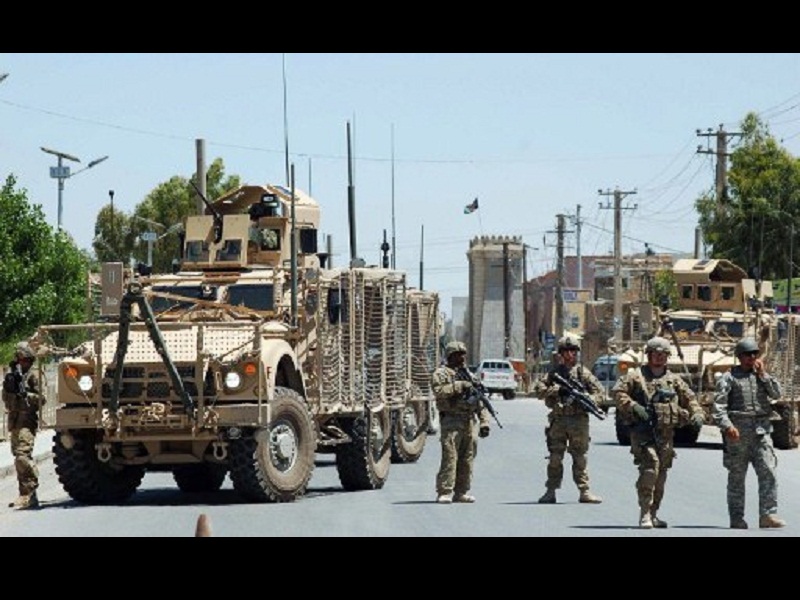US may have committed war crimes in Afghanistan — ICC prosecutor

US soldiers stop traffic leading to the governor’s compound in Kandahar, Afghanistan, on April 28, 2012. The ICC’s prosecutor Fatou Bensouda said US forces might have committed war crimes in Afghanistan through “cruel or violent” interrogation of suspects. AFP FILE
THE HAGUE, Netherlands — US forces may have committed war crimes in Afghanistan through the “cruel or violent” interrogation of detainees, mostly between 2003-2004, the chief prosecutor of the International Criminal Court said Monday.
Unveiling the results of a lengthy initial probe into atrocities committed in Afghanistan, prosecutor Fatou Bensouda said the Taliban militia, Afghan government forces and US troops as well as the CIA all appeared to have carried out war crimes.
READ: ICC to closely monitor PH for killings under antidrug campaign
But for the first time she highlighted allegations of “war crimes of torture and related ill-treatment, by US military forces deployed to Afghanistan and in secret detention facilities operated by the Central Intelligence Agency.”
There was a “reasonable basis to believe that” during the interrogation of detainees, “members of the US armed forces and the US Central Intelligence Agency resorted to techniques amounting to the commission of the war crimes of torture” as well as cruel treatment and rape.
Article continues after this advertisementIn her annual report to members of the court, Bensouda said she would decide “imminently” whether to ask judges for permission to launch a full-blown investigation.
Article continues after this advertisementIf she does, the tribunal would be taking on one of its most complex and controversial investigations to date.
“Members of the CIA” also appeared “to have subjected at least 27 detained persons to torture, cruel treatment… and/or rape on the territory of Afghanistan” as well as in Poland, Romania and Lithuania between December 2002 and March 2008.
Even though the United States has not ratified the court’s founding Rome Statute, such an investigation would expose US forces for the first time to an ICC probe.
There is little chance though of any US soldiers ending up in the dock in The Hague. And Washington has always sought to shield its forces from international prosecution.
Detailing her office’s initial findings, Bensouda said “at least 61 detainees” were subjected to “torture (and) cruel treatment” by US armed forces in Afghanistan between May 1, 2003 and December 31, 2014.
“Members of the CIA” also appeared “to have subjected at least 27 detained persons to torture, cruel treatment… and/or rape on the territory of Afghanistan” as well as in Poland, Romania and Lithuania between December 2002 and March 2008.
The war crimes allegedly carried out by US forces were “not the abuses of a few isolated individuals,” she added in the report.
[I]t appeared “these alleged crimes were committed” as part of “a policy or policies aimed at eliciting information through the use of interrogation techniques involving cruel or violent methods”.
Rather it appeared “these alleged crimes were committed” as part of “a policy or policies aimed at eliciting information through the use of interrogation techniques involving cruel or violent methods”.
The aim was to “support US objectives in the conflict in Afghanistan.”
The ICC was set up in The Hague in 2002 to try the world’s worst crimes in which national courts are unwilling or unable to act.
The report was released just ahead of the opening of the annual conference of the tribunal’s state parties, set this year to be dominated by the withdrawal of three African nations.
Kabul recognized the court’s jurisdiction in February 2003, authorizing Bensouda’s predecessor Louis Moreno-Ocampo to probe atrocities on its territory.
But some African nations have led a chorus to quit the tribunal, accusing it of bias against Africa. Of the 10 current full ICC investigations, nine are based in Africa. CBB